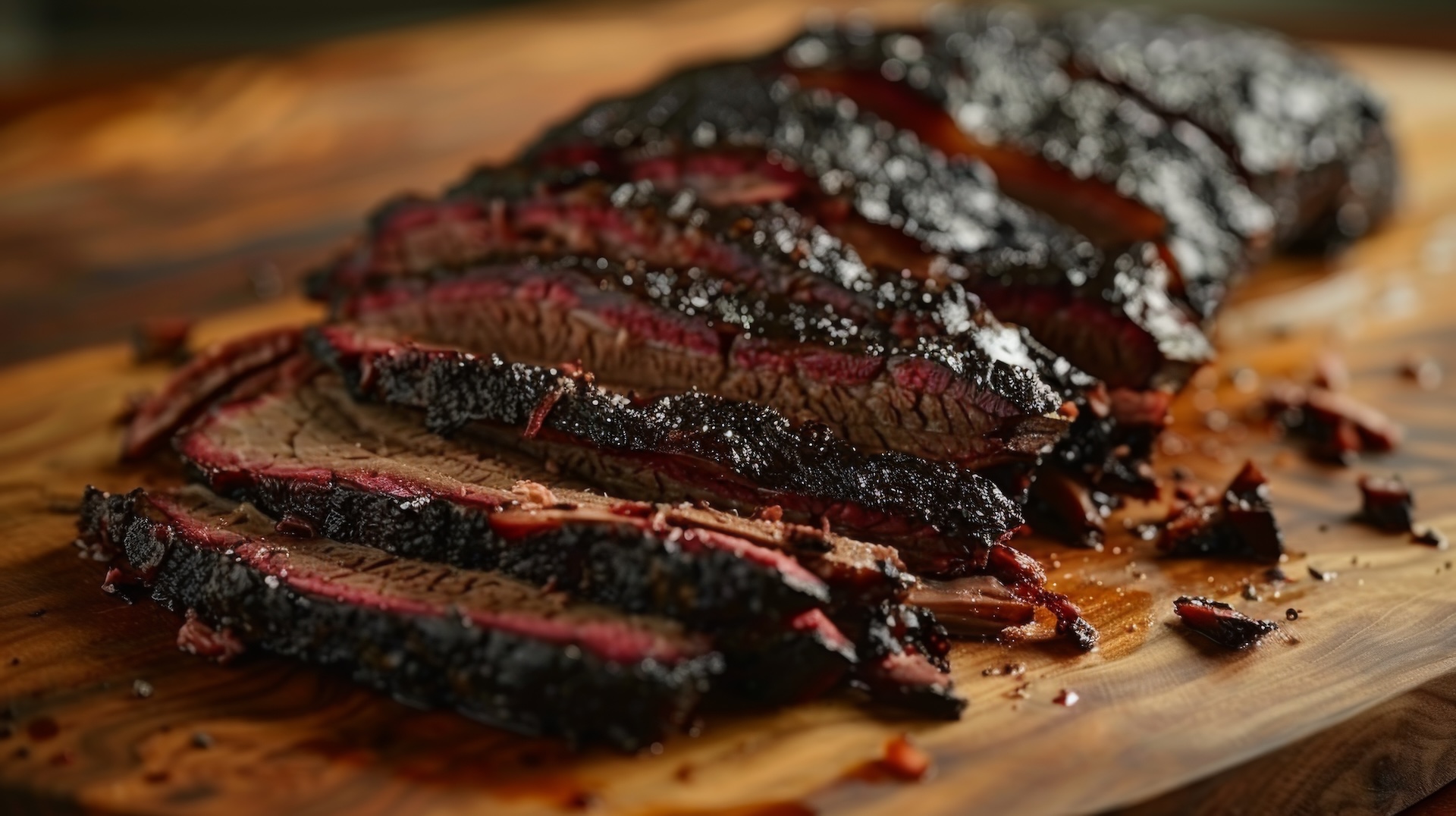How to Make a Great Smoked Beef Brisket the First Time
If you’re an aspiring pitmaster, your first beef brisket feels like like a rite of passage. Brisket is a barbecue classic for good reason. Tricky to cook, easy to ruin… but a revelation for the taste buds when you get it right!In this article, you’ll learn the approach we use at GrillBillies to smoke a beef brisket you’ll be proud to serve. If you’re thinking of smoking your first brisket, this should give you the confidence to forge ahead. If you already have some experience with brisket, maybe you’ll pick up a few ideas you can apply to your next one.
Remember, like any culinary art, the way you smoke a brisket is never set in stone. Use this guide as a starting point, and feel free to try new seasonings and techniques as you build confidence.
The process described here involves indirect or offset smoking. Our Meadow Creek pig roasters, tank smokers, and backyard offset units are ideal for this, and a kamado-style grill works great too. But don’t worry if all you have is a gas grill: with a few adjustments, you can absolutely use your gas grill to smoke a great brisket. (Click here to learn how smoking works on a gas grill.)
Ingredients
- 1 whole brisket (point and flat), 10 to 15 pounds
- 3 tbsp vegetable oil
- Butcher Prime Injection (according to label instructions)
- 2-3 tbsp Southern Q’s 100 Proof
- 2-3 tbsp Meadow Creek TX Brisket Rub
- Parkay Margarine (Squeezable)
Directions
Cooking temperature: 275 degrees
Cook time: About 8 to 10 hours
Meat Prep
If you have time, do the prep the night before you cook. This gives the flavors more time to really soak into the meat.
- 1Remove the “fat cap,” leaving virtually no fat on the brisket.
- 2At the thinnest edge of the flat, make a small cut across the grain, removing the corner. When the brisket is done, this cut will show you which way to slice it.
- 3Mix Butcher Prime Injection according to the label instructions. Using a grid pattern of about 1 inch, inject the fat cap side of the brisket. Push the needle about 3/4 of the way through the thickness of the meat, then inject as you slide the needle out. Keep the injection agitated as you work. (For better results, mix the injection 24 hours ahead of use.)
- 4Rub vegetable oil over the entire brisket. This will help your rub stick to the meat.
- 5Rub the meat with your favorite rub. We like to layer our seasonings on brisket and enjoy a 1st layer of Southern Q’s 100 topped with Meadow Creek’s Texas Brisket Rub.
- 6Wrap the brisket in loosely in foil or in a foil pan and place back in the fridge fat cap up.
Fire Prep
- 1Light a charcoal fire and stabilize the temperature at 250 degrees.
- 2Add a few chunks of hickory or a pecan and cherry blend to the charcoal (no softwoods!).
- Bring the smoker/grill temp up to 275 degrees.
The Cook
- 1Take the brisket out of your fridge or cooler and place it on the smoker or grill COLD, with the fat cap up. (See our article on smoking).
- 2Place a digital thermometer probe in the thickest part of the flat. If you can, position another probe to monitor the temperature at the cooking grate. This gives better accuracy than the built-in thermometer on most smokers.
- 3Close the lid and leave it closed until the next step.
- 4When the brisket reaches an internal temperature of 160 degrees, it has taken on all the smoke it needs. Remove it and place it on two layers of foil in preparation for wrapping.
- 5Baste the brisket with liquid Parkay margarine, then wrap it in two layers of foil and return it to the cooker. Place the temperature probe back into the meat.
- 6Bring the meat temperature up to 195 degrees. Note: Don’t worry if the temperature stops rising at around 160 degrees for an hour or more. This “stall” is normal, and the temperature will eventually start rising again.
- 7Open the smoker and insert the temperature probe into a few different places in the meat. Push the probe sideways into the middle of the meat. If it’s done, the probe should pass through the meat with little resistance, as if it’s going into warm butter. If not, keep cooking until it does. This should happen somewhere around 198 to 210 degrees F.
Serving Prep
- 1When the brisket is done, remove it from the smoker, open the two layers of foil, and let the steam escape for 5 minutes. Then wrap it in a third piece of foil, plus some towels or a blanket for insulation.
- 2Place the wrapped brisket in a cooler and let it rest for two hours if possible.
- 3Open the foil around the meat, being careful to retain the juices inside. Pour the juices into a bowl.
- 4Mix the juice, and extend it with the barbecue sauce of your choice if you need to.
- 5Slice the brisket across the grain, using your earlier cutoff as a guide.
- 6 Lightly sprinkle the slices with the juice mixture and serve!
